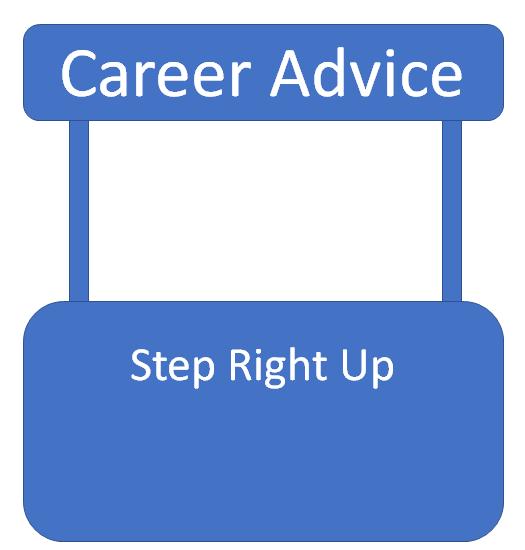As I gradually transition to a new phase in my life, I’ve thought a great deal about what I might say to that fresh-faced Stanford MBA who launched her career several decades ago. Here are a few things that come to mind…
 Choose an industry and a role within it that inherently interest you. You’ll get a lot of “good advice” about what’s hot and what’s not, what pays well and what doesn’t, and where opportunity knocks. But remember: You’re going to spend a really big chunk of your life immersed in that environment. If you don’t find it captivating, or the demands of your job are a mismatch with your personality, you won’t do your best work or feel energized about it. And that’s a tough row to hoe week-after-week, year-after-year.
Choose an industry and a role within it that inherently interest you. You’ll get a lot of “good advice” about what’s hot and what’s not, what pays well and what doesn’t, and where opportunity knocks. But remember: You’re going to spend a really big chunk of your life immersed in that environment. If you don’t find it captivating, or the demands of your job are a mismatch with your personality, you won’t do your best work or feel energized about it. And that’s a tough row to hoe week-after-week, year-after-year.
Take advantage of information interviews to gain a sense of career options that you think you’d find attractive. Folks who’ve been around the track a few times are generally delighted to lend a helping hand to someone who is interested in joining the ranks. Don’t be afraid to ask! But do your homework before the meeting. Read about issues facing the industry. Take a look at sample job descriptions to understand a bit about the scope of responsibilities. Come prepared with conversation starters to help you explore a day-in-the-life as well as the key ingredients to success. See where and how it might light you up; surface frustrations and challenges.
Put your best foot forward when seeking employment. Make sure your job application, resume, and other materials are well-written and build a compelling case for why you’d make a great addition to the organization. (Have someone proof your work to surface typos and grammatical mistakes!) As with your information interviews, do your homework on the industry, the company, and the position for which you are applying. In short, be prepared to make a great impression… every time.
Don’t sweat it if you don’t hit pay dirt during your first few years on the job. You may have thought deeply about what floats your boat yet still come up short on enthusiasm once you get into the position. That’s OK! There are things you simply won’t know about yourself until you’re actually doing the work. And there are things about the company that you won’t know until you’re actually in it. Take time to think through the factors that make your situation unappealing. Be specific! Then ask yourself:
- Are there things about yourself that you simply need to work on? (Better to stay on the job and work out your own junk rather than play out that same old act on a new stage!)
- Are there things you can learn and skills you can develop before moving on?
- Is your employer amenable to working with you to make adjustments?
- Do you need to log a respectable amount of time here before vying for a new position?
Learn to be your own advocate. It’d be lovely if there was a fairy godmother who played a starring role in your advancement. But most of us aren’t blessed with that kind of mentor. It’s up to you to discern which projects, experiences, responsibilities, job titles, et al will advance your journey. And it’s up to you to keep an eye out for opportunities as they arise. That being said, make sure you’ve mastered the work to which you’ve been assigned before clamoring after the next one.
Beware of being perceived as indispensable to the job you’re currently doing. There will be a high degree of resistance to letting you move on. (In fact, it could very well be the reason that you don’t even hear about new opportunities!) Cultivate skills that will make you eligible for the next logical step in your career. Work with your boss to groom your replacement and develop the transition plan that will help things run smoothly once you’ve left. If you’re a great employee, they’ll want to keep you interested and engaged rather than lose you.
Don’t expect the workplace to be a meritocracy. The best and brightest don’t always find their way to the top of the heap. A number of other factors play a role: connections, tenure, “fit,” luck, etc. It may not seem fair, but that’s the way it works. Get over it. Focus on putting forth your best possible work while advancing your skills and knowledge.
Surround yourself with great people. Few things are as rewarding as working with a collective of folks who share your passion, stimulate your mind, challenge you to be your best self, and serve as traveling companions on your professional journey. They’ll make work much more interesting and enjoyable. They’ll share in your triumphs and lift you up in your disappointments. And quite a few of them will wind up becoming life-long friends.